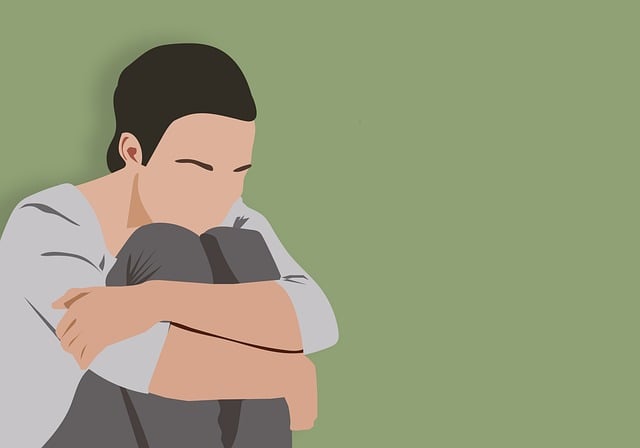Anxiety disorders impact millions globally, impairing daily life with worry, fear, and physical symptoms. Diagnosis by mental health professionals using DSM criteria is crucial for effective treatment. Cognitive Behavioral Therapy (CBT) in Gilbert, AZ, targets negative thought patterns and behaviors, teaching coping strategies. Mindfulness practices, exercise, diet, sleep, social connections, and support groups enhance well-being. Building resilience through holistic approaches and self-care reinforces CBT techniques for long-term anxiety management. Finding a licensed CBT expert for personalized therapy is key to overcoming anxiety disorders in Gilbert.
Anxiety disorders affect millions, but effective therapy options are available in Gilbert, AZ. This guide explores comprehensive strategies for managing anxiety, with a focus on Cognitive-Behavioral Therapy (CBT). From understanding symptoms and diagnosis to practical daily techniques and mindfulness practices, you’ll discover tools to take control. Learn how building resilience enhances long-term anxiety support. Find the right therapist in Gilbert for personalized, effective treatment tailored to your needs.
- Understanding Anxiety Disorders: Symptoms and Diagnosis
- Cognitive-Behavioral Therapy (CBT): A Step-by-Step Guide
- Techniques for Managing Anxiety in Daily Life
- The Role of Mindfulness and Relaxation in Anxiety Reduction
- Building Resilience: Strategies for Long-Term Anxiety Support
- Finding the Right Therapist: Tips for Effective Treatment
Understanding Anxiety Disorders: Symptoms and Diagnosis

Anxiety disorders are a common mental health concern that affects millions worldwide and can significantly impact daily life. Understanding these disorders is the first step in finding effective anxiety support Gilbert offers. Symptoms can vary widely but often include persistent feelings of worry, fear, or anxiety, along with physical manifestations such as increased heart rate, sweating, and difficulty breathing. Individuals may also experience insomnia, fatigue, irritability, and avoidance behaviors related to triggering situations.
Diagnosis typically involves a comprehensive evaluation by a qualified mental health professional. They will assess the severity and duration of symptoms, their impact on daily functioning, and any co-occurring conditions. The American Psychiatric Association’s Diagnostic and Statistical Manual (DSM) provides standardized criteria for diagnosing specific anxiety disorders, ensuring consistent and accurate assessments. With proper identification, individuals can access tailored counseling for anxiety or Chandler anxiety therapist services to manage their symptoms effectively.
Cognitive-Behavioral Therapy (CBT): A Step-by-Step Guide

Cognitive Behavioral Therapy (CBT) is a highly effective approach to managing anxiety disorders, offering individuals in Gilbert, AZ, and beyond valuable tools for overcoming their fears and worries. This therapy type focuses on identifying negative thought patterns and replacing them with healthier, more realistic ones. It also teaches practical coping strategies to manage symptoms.
The process begins by assessing your thoughts, feelings, and behaviors related to anxiety. A therapist will help you understand how these interact to create a cycle of anxiety. They’ll guide you through identifying cognitive distortions—unhelpful thought patterns that contribute to fear and worry. Once these are recognized, the work shifts to challenging and changing these distortions. This involves learning to recognize negative thoughts when they arise and replacing them with more balanced, evidence-based alternatives. Additionally, CBT equips you with relaxation techniques and problem-solving skills to further manage anxiety symptoms. Over time, this step-by-step process empowers individuals to face their fears and change their response to stressful situations, effectively reducing anxiety levels and improving overall mental health, including those seeking mental health counseling in Gilbert or Chandler.
Techniques for Managing Anxiety in Daily Life

Anxiety can significantly impact daily life, but there are numerous techniques to help manage it effectively. Cognitive-behavioral therapy (CBT) is a highly effective approach that focuses on identifying and changing negative thought patterns and behaviors contributing to anxiety. This involves learning to challenge distorted thinking, acquire coping strategies, and gradually expose oneself to feared situations in a safe manner, known as gradual exposure therapy.
In addition to CBT, various other strategies can provide anxiety support. Mindfulness practices, such as meditation and deep breathing exercises, help individuals stay present and grounded, reducing the intensity of anxious feelings. Regular exercise, maintaining a balanced diet, and adequate sleep also play crucial roles in managing anxiety levels. Additionally, seeking out supportive social connections or joining support groups can foster a sense of belonging and provide valuable coping mechanisms for those dealing with anxiety disorders, enhancing overall well-being.
The Role of Mindfulness and Relaxation in Anxiety Reduction

Mindfulness and relaxation techniques are powerful tools in the arsenal against anxiety disorders, offering a holistic approach to anxiety support in Gilbert, AZ. These practices encourage individuals to focus on the present moment, cultivating awareness without judgment. Through mindfulness, one can observe anxious thoughts as they arise, but not get caught up in their distressing nature. This shift in perspective allows for better management of overwhelming emotions, which is especially beneficial for those seeking counseling for anxiety.
Relaxation techniques, such as deep breathing exercises and progressive muscle relaxation, help reduce the physical symptoms of anxiety, like a racing heart and tense muscles. By regularly incorporating these practices into their routine, individuals can create a sense of calm and balance, enhancing their overall well-being. Mesa anxiety treatment centers often emphasize these methods, recognizing their effectiveness in complementing evidence-based therapies like cognitive-behavioral therapy (CBT) to provide comprehensive anxiety therapy Gilbert residents need.
Building Resilience: Strategies for Long-Term Anxiety Support

Building resilience is a crucial component of long-term anxiety support. After completing initial therapy for anxiety in Gilbert or counseling for anxiety, individuals can reinforce their coping mechanisms by adopting several strategies. Regular mindfulness practices have been shown to reduce anxiety symptoms and increase emotional regulation, allowing people to navigate stressful situations with more composure. Engaging in physical activity not only releases endorphins but also provides a healthy outlet for managing stress and anxiety. Additionally, maintaining a structured routine, prioritizing sleep hygiene, and practicing deep breathing exercises can significantly enhance overall well-being and reduce the impact of anxiety disorders.
Support groups and peer connections offer valuable anxiety support Gilbert residents can tap into. Sharing experiences and learning from others facing similar challenges fosters a sense of belonging and empowers individuals to continue their mental health journey. Moreover, incorporating relaxation techniques like yoga or meditation into daily life can further fortify resilience against anxiety flare-ups. These holistic approaches, combined with consistent self-care practices, ensure that individuals equipped with cognitive-behavioral therapy (CBT) skills and other effective strategies remain steadfast in managing their anxiety disorders over time.
Finding the Right Therapist: Tips for Effective Treatment

Finding the right therapist is a crucial step in your journey to overcome anxiety. When seeking anxiety support Gilbert, consider looking for a licensed professional with specialized training in cognitive-behavioral therapy (CBT), a highly effective approach for managing anxiety disorders. Ensure they have experience treating similar conditions and can provide a safe, non-judgmental space for open dialogue.
A good therapist will actively listen to your concerns, help you identify negative thought patterns, and teach you practical coping strategies. They should also offer personalized treatment plans that align with your unique needs. Remember, the therapeutic relationship is collaborative, so it’s essential to feel comfortable and connected with your chosen mental health counselor in Gilbert. This connection fosters trust and engagement, which are vital for successful anxiety therapy Gilbert outcomes.
